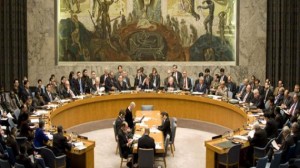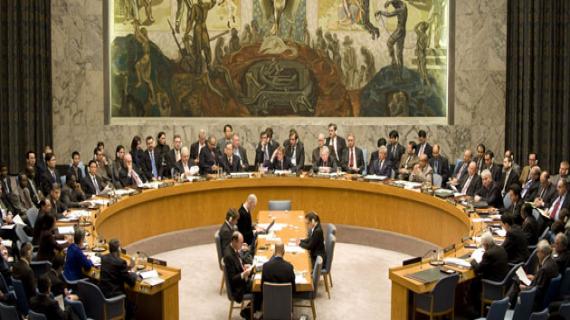The New York Times
by Rick Gladstone

The United Nations Security Council on Friday renewed its peacekeeping mission in the disputed Western Sahara region for a year with a resolution that placed only mild pressure on Morocco, which in a diplomatic flare-up last month expelled many of the staff members of the mission, crippling its ability to function.
The resolution expressed the “urgent need” for a full restoration of the mission, known by its acronym, Minurso, and called on the United Nations secretary general, Ban Ki-moon, to report in three months whether it had been returned to “full functionality.”
The measure did not order the Moroccans to rescind the expulsions. It also did not specify what further steps might be taken to resolve the mission’s severe limitations, which have raised fears of a return to armed conflict in Western Sahara, a mineral-rich region long claimed by Morocco.
The Security Council’s handling of the expulsions was under scrutiny by other nations where peacekeeping missions have been deployed.
Minurso has operated in Western Sahara for a quarter-century, helping to monitor a cease-fire between Moroccan forces and the Polisario Front, a pro-independence movement.
The effort to find a political solution has been foundering for years. A crisis erupted last month after Mr. Ban visited a camp for displaced Western Saharans and described their region as “occupied,” infuriating the Moroccans who said Mr. Ban had abandoned neutrality on the issue. Mr. Ban and his aides denied the accusation, but Morocco’s government still ordered dozens of civilian staff members of Minurso to leave.
The resolution adopted on Friday, one day before Minurso’s mandate expired, reflected a willingness to compromise despite divisions within the 15-member Council. Ten members approved the resolution, including the United States, which drafted it. Venezuela and Uruguay opposed it, and Russia, Angola and New Zealand abstained.
Some dissenting diplomats said the resolution should have been worded much more sternly and Morocco given a short deadline to allow the mission to resume full operations. The Polisario Front’s representative at the United Nations, Ahmed Boukhari, also criticized the measure for that reason.
“This resolution has dealt with the crisis in a soft manner,” Mr. Boukhari said in a phone interview. “Why this accommodation with Morocco?”
Morocco welcomed the resolution. The Moroccan American Center for Policy, a group of organizations that represent the views of the Moroccan government, said in a statement that the resolution’s language had reiterated the need for negotiations between Morocco and the Polisario Front based on “realism and a spirit of compromise.”
Samantha Power, the United States ambassador to the United Nations, acknowledged in remarks after the vote that the renewal of the Minurso mandate this year had been “challenging and contentious — that is an understatement.”
Ms. Power hinted that the absence of forceful language in the resolution was deemed necessary to help create an atmosphere that would lead to Minurso’s restoration.
“It is important that Morocco and the United Nations have a constructive relationship,” she said. “In fact, it is absolutely necessary if the U.N.-led process, which we all support, is to bring about a peaceful, sustainable, and mutually agreed solution to the conflict in Western Sahara.”
It was not clear how soon the resolution might help diminish any lingering frictions between Mr. Ban’s office and the Moroccan government. Mr. Ban’s spokesman, Stéphane Dujarric, told reporters at the United Nations, “We’re pleased that the resolution has passed.”







